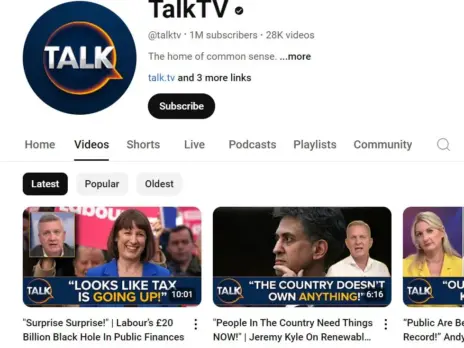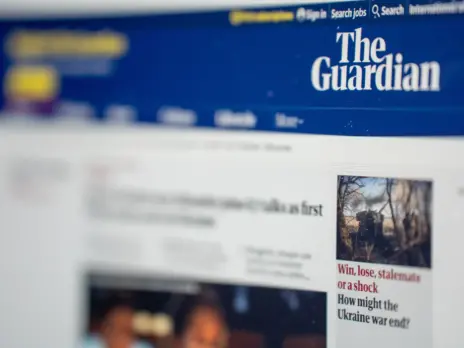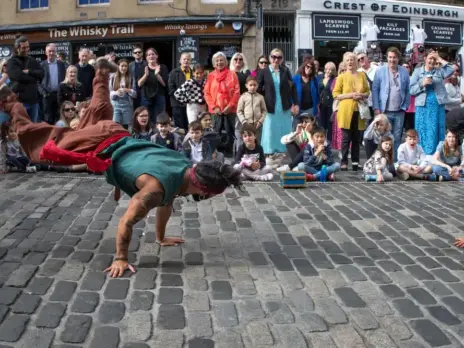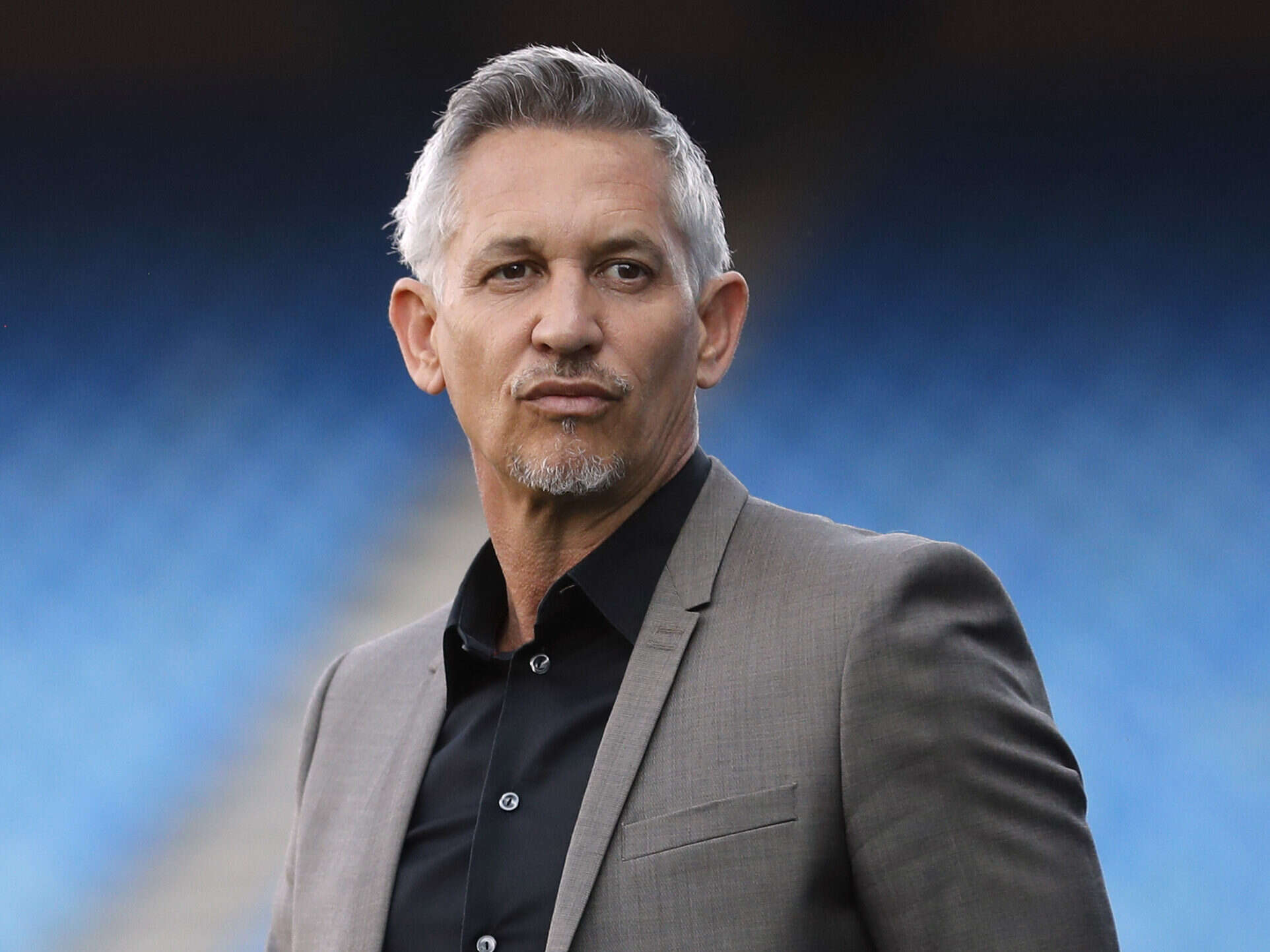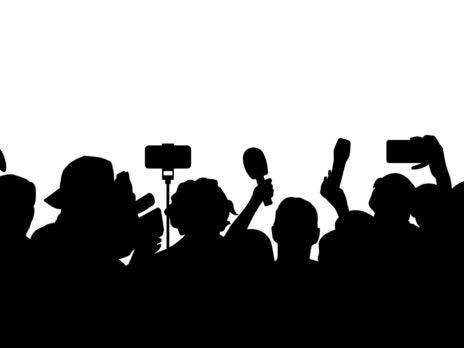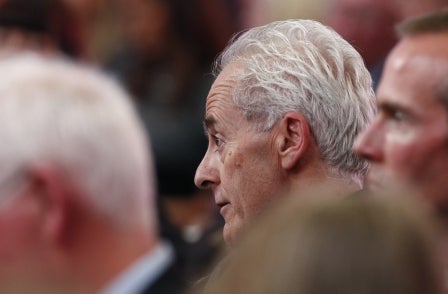
Having previously interviewed Nick Davies on the phone, met him subsequently and spoken about that interview, posed for a photograph with him at an awards event and questioned him at another event, I’m a little disappointed with his greeting: “Are you William?”
I’ll let him off. He’s had a busy day, making various media appearances to plug his new book, Hack Attack. Years in the making, it tracks Davies’s personal journey uncovering the News of the World phone-hacking scandal between February 2008, when a source contacted him to say hacking was widespread throughout the paper, through July 2011, with the revelation that the News of the World had hacked Milly Dowler’s phone, to the present day. It also uses information from court hearings, the Leveson Inquiry and interviews to describe life behind the scenes at the News of the World and News International (now News UK).
Based in East Sussex, Davies is technically a freelance journalist but works for The Guardian on a retainer. As a junior reporter, he joined the paper on the same day as Alan Rusbridger, who became his friend and later editor of The Guardian.
For me, one of the highlights of the book is the insight you get into Davies’s friendship with Rusbridger and others – including the description of a scene when the pair were called before a select committee in July 2009 to discuss phone-hacking allegations which many were sceptical about. In Davies’s words, they expected to be “barbecued” by MPs.
“Rusbridger and I were heading for disaster. Indeed, Rusbridger also had his doubts about me. He knows my mouth sometimes works much faster than my brain and, as we took our seats, he explained that if I started to get wild, he would squeeze my knee under the table. Rusbridger made an opening statement about the regulation of the media and then, with the vague distraction of my editor’s fingers drifting towards my inner thigh, I started talking.”
Fortunately, Davies had some documents which he could present to the committee: an email for NoW chief reporter Neville Thurlbeck containing transcripts of Professional Footballers' Association chief executive Gordon Taylor's voicemails, and a contract, signed by NoW assistant editor (news) Greg Miskiw, offering a £7,000 bonus to 'Paul Williams' (a false name for phone-hacker Glenn Mulcaire) for a story about Taylor's private life.
The documents were redacted to protect Taylor's privacy by Davies's children, armed with a pot of glue, a pair of scissors and some black paper, while their father “sat in my study to think”.
Davies concludes the select committee scene: “By now, the atmosphere in the room had changed. The MPs on the committee were flicking through the paperwork I had given them, frowning, shaking their heads, exchanging whispers. Rusbridger had relaxed and taken his hand off my knee.”
.jpg)
Alan Rusbridger, Reuters
No doubt Davies will be pleased with my attention to detail. He warns me that some of the people to have interviewed him so far today haven’t even read the book. I’ll be sure to show off my knowledge.
We met at a Café Nero underneath Broadcasting House to fit in with Davies’s other media appearances.
Since we’re at the BBC headquarters, you quote a source as saying that James Harding, Times editor turned head of BBC News, was “puce with rage” at the suggestion he should follow up on your original Gordon Taylor hacking story. Does that make him a bad choice for the BBC, given its recent history of cover-ups and controversy?
No. I think there’s a distinction between bad organisations and whether people work for them are bad. I don’t think James Harding is a bad man – at all. I think Murdoch’s company is bad, and so there are great pressures on people.
And, in fact, James Harding’s really a very minor example of that, but I’d say what’s interesting is that most people who become journalists are decent, honest people. And a lot of people still become journalists for very idealistic reasons: they want to write important stories that make the world a better place. And yet they get sucked in to working for bad organisations, which put great pressure on them to do bad things…
We had something like 30 people who’d worked for the News of the World coming forward and collaborating to expose it [the phone-hacking scandal]. They’re not bad people – they work for a bad organisation.
In the News of the World, there was this horrible regime of fear, just bullying down the hierarchy, which is all too familiar in newspapers… And it’s a horrible experience for a decent, honest person to be working at the lower levels of that kind of hierarchy and being forced to do things that they don’t want to do – forced to do bad things, ruling breaking, law breaking, or simply going out and bullying and cheating sources of information, and writing stories that aren’t true. It’s one of the saddest things that goes on in journalism, I think.
Prior to working for The Guardian, you spent some of the early years of your career working on the tabloid press, including the Sunday People. Do you think your tabloid training has served you well?
I think in some respects it has, because tabloids tend to be tougher, and you’re much more likely to really go for a story. Whereas the great thing about working for The Guardian is, okay, we get paid less than other people in Fleet Street, but it’s a nice atmosphere. Nobody shouts at you, nobody bullies you. And therefore we are a bit softer.
And so if there’s a big story breaking it’s far more likely to be the Daily Mail that catches the new angle than The Guardian. On the other hand, The Guardian won’t have done anything dodgy in the course of its work.

As well as the tabloids, Davies is also critical throughout the book of The Sunday Times.
He reports how after his first hacking revelations in July 2009, The Sunday Times’s David Leppard was planning to write a story claiming that Rusbridger had “hired a high-calibre security consultancy, Ciex, to produce a ‘due diligence’ report on a company it was investigating".
In retaliation, Davies highlighted a story to his editor in which they could publish tape recordings linking Leppard and The Sunday Times with a private investigator. “How would [Sunday Times editor John] Witherow like it if The Guardian posted those tapes on its website?” Davies wrote. “By late morning, the two editors had agreed to pull their tanks off each other’s lawns. Witherow withdrew the story which Leppard had been working on [which Davies says was untrue]. Rusbridger withdrew the story about Fleet Street’s use of dark arts which I had written for Monday’s Media Guardian and agreed not to use the… tape. Rusbridger and I were both happy enough to be fighting on only one front.”
Were you right to make that deal?
It’s very difficult…. I mean it was a very, very scary situation that we were in.
It begins actually with Alan being [equipped] as I often say is a rare bit of equipment, which is a backbone.
The story that I brought in was obviously highly provocative. You’re taking on the most powerful news organisation in the country, and the most powerful political party, and the police force, and the press regulator. All in one go, in one story. That’s a hell of a lot of enemies to make.
And we’re fighting them off, because there was lots of denial and falsehood going on, particularly from the police and News International.
So I think his feeling, and my feeling too, was let’s just not open a second front against The Sunday Times right now. We’ve got enough enemies to fight.
Davies originally planned to publish a document called Hack Attack in the run-up to the 2010 General Election, exposing David Cameron’s PR adviser Andy Coulson.
Was it frustrating that your story exploded a year and a half after the General Election? It seemed like you wanted to make a political difference.
Oh. I would have done the story regardless of which political party Coulson was working for. I’m not attached to any political party at all. And nor’s The Guardian…
It’s definitely not the case that I had some sort of ambition to shoot at the Tories before the election. But what I did feel was that if the British Prime Minister wants to recruit somebody whose job is to communicate with the British people that it’s a very bad idea to recruit somebody who already has a history of lying to Parliament and the British people. And that was the issue.

Andy Coulson, Reuters
What did you think of the Leveson Inquiry?
I thought the inquiry itself was wonderful – like an orgy for reporters to have so many powerful people compelled to talk on the record, on oath, about the way British society really works, government, and police, and press. And on occasion to have text messages and emails flushed out. It was just an amazing insight into the world of power. And if journalism is worth doing, it is primarily to expose the world of power. So I thought it was great.
As for the political reaction afterwards, I personally think that Leveson’s suggestion about setting up an independent regulator to be run by the newspapers but to be checked to make sure that they’re playing safe is a very clever solution to a very difficult problem…
And what you then saw was something very ironic: newspapers engaging in exactly the kind of aggressive falsehood and distortion in misreporting Leveson that had made Leveson necessary in the first place. And then beyond that what was depressing is you saw politicians backing off because they were scared… to see newspapers campaigning against that for their own self-interest was really appalling.
Do you think the Leveson Inquiry has had any chilling effects? And do you think there’s a case that as a result of Operation Elveden, into payments to public officials by journalists, sources have been put off speaking out?
I think that the senior ranks of Scotland Yard, and some other police forces, have been very cynical and authoritarian in their reaction to this.
So the history here is that while we’re trying to uncover this scandal the senior ranks of Scotland Yard are engaging in a campaign of misinformation. People from the middle ranks are helping us to expose the truth and blowing the whistle. The scandal emerges. The senior ranks of Scotland Yard then take the completely separate business of some journalists paying bribes to some police officers and say: in order to stop that happening, every time any officer speaks to any journalist it has to be recorded.
Now that closes down the whistleblowers releasing the truth, and puts the control of information into the hands purely of the senior ranks – who were the guys who were guilty of the misinformation! I don’t blame Leveson for that. They were up to that long before Leveson.
On phone-hacking, former Guardian investigations editor David Leigh did it once. Would you ever phone-hack under any circumstances?
I think… in respect of all law, prosecutors always recognise that there can be circumstances where it’s right to break the law.
So at a simple level, if you’re driving your pregnant wife whose about to give birth to the hospital nobody’s going to prosecute you for jumping the red light.
And it’s that logic that meant that the DPP looked at the David Leigh case and said: ‘Well, we don’t want to prosecute you for this – you were exposing global corruption in the global arms trade.’
And, I would say, the position is this: Journalists aren’t above the law. All citizens have the right to break some laws sometimes in special circumstances – and that includes journalists.
The truth is most of the time we don’t need to break the law. The conventional techniques of journalism are fine: talking to people, persuading them to give you information, collecting documents – that’s a much more interesting way to work, and just as effective.
.jpg)
David Leigh
There are quite a few references in your book to the fact that you and Rusbridger thought you were being hacked while carrying out your investigation. Do you believe you were hacked?
No. I’ve got no evidence that we were hacked…
Anybody who takes on the Murdoch organisation will be frightened. Because there are ruthless, cruel people who have a history of working for him and who like to invade people’s privacy in order to humiliate and hurt, either by exposing that are really private and true, and/or by distorting them.
So of course you’re bound to be worried about what they’re doing. And I think it would have been rather surprising if it hadn’t worried us that our voicemail might be hacked or that bugs might be placed.
As to whether or not any of us were put under surveillance electronically, I simply don’t know the answer.
At the end of your book , you concluded on the negative note that: “In truth, very little has changed.” Is that true?
It will be very interesting to see over the next ten months leading up to the General Election next May whether the Murdoch titles continue to throw their weight around as though they had some kind of right to decide what the next government should be. It’s extraordinary if you think about it.
My fear is that really nothing has changed and that you’ll see the Murdoch titles trying to behave like king-makers and you’ll see politicians calculating that it’s not worth the risk of standing up to them and that they’ll have to try and come up with things to placate them…
But I just think there’s no point in kidding ourselves… there was an amazing period back in the summer of 2011 when Rupert Murdoch was having the most humble day of his life, and all the children had taken over the classroom and were dancing on the desks, and the headteacher was running down the road away from us. But very slowly things have moved back I think to the status quo. And I don’t get the impression that Rupert Murdoch or any of his senior people have really learnt lessons from this…
 In your book you report that 101 journalists have been arrested or interviewed – Press Gazette reports that at least 63 have been arrested and/or charged – but many more have been questioned. Is it frightening that Britain has had more journalists arrested than most other countries around the world?
In your book you report that 101 journalists have been arrested or interviewed – Press Gazette reports that at least 63 have been arrested and/or charged – but many more have been questioned. Is it frightening that Britain has had more journalists arrested than most other countries around the world?
Well, it depends what it’s telling you. If the police were arresting journalists for doing their job, it would be an extremely scary statistic. If police are arresting journalists for breaking the law, that’s a completely different thing. My one big concern about it is if there’s a pattern for foot soldiers to be arrested and blamed for what the generals told them to do.
And you may remember that in the book if you go back to the beginning, the Gordon Taylor story, we made the decision not to name the junior journalists who were implicated in crime. For precisely this reason: that we didn’t want to shit to fall downwards. And it’s never been an objective of mine at all to see journalists being arrested – even when they have broken the law.
It’s very difficult this. So you go back to this decision, that I made and that Alan endorsed, not to name junior journalists who had broken the law. And I’ve admitted in the book that it wasn’t just because I didn’t want the junior journalists blamed for what the senior told them to do. It was also because I’m a journalist and they're a journalist.
What do you think of that? Is that right, that a journalist should offer some sort of special favour to people from his profession? So if we were talking about let’s say junior members of a corporation, or a trade union or a government department, I don’t know that we would have made the decision.
So it is arguable that we erred in the wrong direction – by not naming journalists. It’s very difficult to get these judgments right. Personally I feel happy that we didn’t do it. The word I used in the book was ‘queasy’. It made me feel queasy naming these guys. So we didn’t…
As to the underlying thing, should journalists be arrested? I think probably we have to say journalists should be arrested if they break the law. And perhaps I was wrong to withhold their names in the beginning. But actually given the same situation I would probably do the same again.
And yet, Andy Coulson, you say in the book, called you a traitor.
Yeah. I mean, Coulson obviously isn’t very pleased with me.
Do you think anyone else feels the same?
Oh, yeah. I think that the bad guys hate me. Is it reasonable to cite this, that [Press Gazette editor] Dominic Ponsford once said to me: ‘I can’t follow up your stories because all our advertising comes from these newspapers.’ Very decent of him.
And Press Gazette coverage of the thing hasn’t been covered in glory to tell you the truth. But on the other side of it, when you ran that contest [top ten investigative journalists] where people voted for best investigative hack, the readers came up with the dreadful Nick Davies.
Editor’s note: I can only think that I must have been being largely flippant, or flattering, when I said that, because there was a long time (between July 2009 and July 2011) when Press Gazette was among the very few titles following up The Guardian hacking scandal coverage. As a trade title for all journalists it is true that we are more positive in general about tabloid journalism than The Guardian.
But this timeline, linking through to Press Gazette stories, https://www.dipity.com/dominicponsford/News-of-the-World-phone-hacking-scandal/, shows the very many stories we did about the hacking scandal.
This Press Gazette story, from 2006, pre-dates Davies’ work by two years and alleges that phone-hacking was widespread across Fleet Street. We quoted a source who said that it was not just Goodman and Mulcaire:
"There are a lot more involved. They have been using these methods for some time.
"There could be a paper trail for this. The source would have invoiced the News of the World for this because there would have been too many payments to deal in cash.
He added: "When you've got a contact that can do this, everyone will use them – the newsdesk will use them, showbiz will use them. There will be a lot more to come out than just this specific case."
An ex-News of the World staffer said the practice was so prevalent on the paper when they were there that journalists even did it to each other: "When I was on the paper there was a war between the features department and news. Features would hack into the phone of somebody who was on the newsdesk to see what story they might be working on."
I would also note that Press Gazette serialised Davies’s book, Flat Earth News, in 2008 (investigating malpractice on Fleet Street) when every national newspaper – including The Guardian – declined to do so.
For the record I am a big fan of Davies and certainly agree that with hindsight we could have done better with our coverage of the hacking scandal. We probably gave too much credence to the News of the World denials in the early days.
And so I think if you say that there are other people apart from Andy Coulson who don’t like me I have no doubt at all that the bad minority who’ve done so much damage to Fleet Street absolutely hate me and would love to do my legs.
But I take great comfort from the fact in my experience talking to other journalists, in that poll that Press Gazette ran, and just in email and other contact I have had, that most journalists are decent people and they’re glad that the bad guys have been pushed back.
Has the story gone down well in the public?
What I’ve had on this story that I don’t think I’ve ever had before is an amazing thing: ordinary members of the public come up and shake my hand and say nice things.
So I was at a rock festival three weeks ago… and four different people at different points in this festival came up and said nice things about my work.
There’s a moment I describe in the book where there’s a very tough time going on, The Guardian was being attacked for these stories, I was walking through my home town in Sussex, and on the other side of the road there was this little old lady in a long brown coat. And she kind of beckoned at me – I’d never seen her before in my life, and I went over. And she put her hands up on my shoulders, and looked up – she was only tiny – and said something very nice about my work. And I said that’s really sweet of you to say, but there’s a lot of people who really hate us out there. And she said: ‘Well, fuck ‘em.’
Nick Davies at the Leveson Inquiry
In the book you describe a moment where you felt sorry for Andy Coulson as he was being sentenced. Do you still feel that? And do you feel sorry for Rebekah Brooks and Stuart Kuttner after their long period between being arrested and being found not guilty?
I never wrote stories about Rebekah or Stuart being involved in the hacking. I repeatedly wrote stories about Andy Coulson being involved in the hacking because it was so important that the Prime Minister had a liar in his office… So far as Rebekah and Stuart are concerned, that’s about the police….
I was sitting in court on the day that Coulson was sentenced and I did catch myself feeling sorry for him. Because of the scale of his fall… Then I thought back to the number of people whose lives he ruined in order to advance his career and sell papers….
Hacking voicemail is a long way from the most serious of crimes, but I think ruining people’s lives, it isn’t against the law, but it’s a very, very horrible, cruel thing to do. That willingness of the News of the World to just go out and ruin people for the sake of selling newspapers is so repulsive and so wrong… And that’s really what Coulson is guilty of, and why I stopped myself feeling sorry for him.
Two parts of stories that you got slightly wrong were the Milly Dowler ‘false hope’ moment and the allegation that The Sun obtained Gordon Brown’s infant son’s medical records.
The bottom line is that evidence that emerged four months after we broke that [Dowler] story that nobody was aware of, that the police found in the dusty archives – that evidence certainly casts significant doubt on that one element of the story.
That then gets converted by the bad guys into, first of all, certainty that that element is wrong – which is untrue. Second, the idea that we knew it was wrong, made it up and lied – which is absolutely wrong. Thirdly, that the whole story was wrong…Fourthly, that that was the most important angle of the story.
And in a Guardian article I wrote recently I did a check in a news database: how many newspapers reported the Milly Dowler hacking between us disclosing it and the closure of the News of the World being announced? And then: how many actually reported the deletion, or the ‘false hope’ moment? And it was less than a quarter…
If you read the story – you’re a journalist, where do you put your most important fact? In the intro. Where is it in the story? The seventh paragraph. So you can see what’s happening is that that potential error in the story gave the bad guys a stick to beat us with…
Same with the Gordon Brown. The Gordon Brown story is accurate apart from the intro, I think I’ve described how I’ve squeezed everything into a single sentence and made it look as though The Sun had got direct access to the boy’s records.
The Sun then do a front page saying that we or Gordon Brown had claimed that they had hacked into his medical records. That’s never ever been suggested. So immediately you get the distortion machine at work…
All journalists will make honest mistakes… it’s alright to make honest mistakes. From the most junior journalist to the most senior editor people will sometimes make honest mistakes. And that’s okay. The key word is honest. As long as you are trying to tell the truth you’re okay.
I suppose it must have been frustrating to give them some ammunition on such a big story?
For sure. If you get into the ring with these people you have to expect them to try to give you a bloody nose. And you don’t ever win a struggle like this.
Are you pleased the News of the World closed?
Absolutely not. I thought it was an appalling and selfish decision by the Murdochs. At the time I just couldn’t understand why they’d done it. It was so unnecessary.
What’s now clear, and I didn’t understand this at the time, the reason they closed the paper was to try and save the bid for BSkyB. And there was an internal email that was disclosed at the [hacking] trial, which is absolutely explicit on the point that they had been planning – or talking about – closing the News of the World for months before they did it.
So they closed it in mid-July 2011, and the discussion about whether to close it, replace it with The Sun on Sunday and all the rest of it, that had been going on since April. Because the hacking scandal was getting bigger just as the BSkyB bid was approaching the green light moment.
And by June, that’s when the internal email is written… [News International director of corporate affairs] Simon Greenberg to Rebekah [Brooks, News International chief executive and former News of the World editor] saying: ‘We must close this paper now.’ That’s a month before the Dowler story, you see.
And as the two things are coming together the Dowler story happened to break in the week when Jeremy Hunt was about to give the green light to BSkyB. So it’s absolute freak-out time: ‘Quickly, quickly – close the paper. Try and buy us some political time so that Hunt will let the deal go through.’ That’s what it’s about.
Email pged@pressgazette.co.uk to point out mistakes, provide story tips or send in a letter for publication on our "Letters Page" blog

